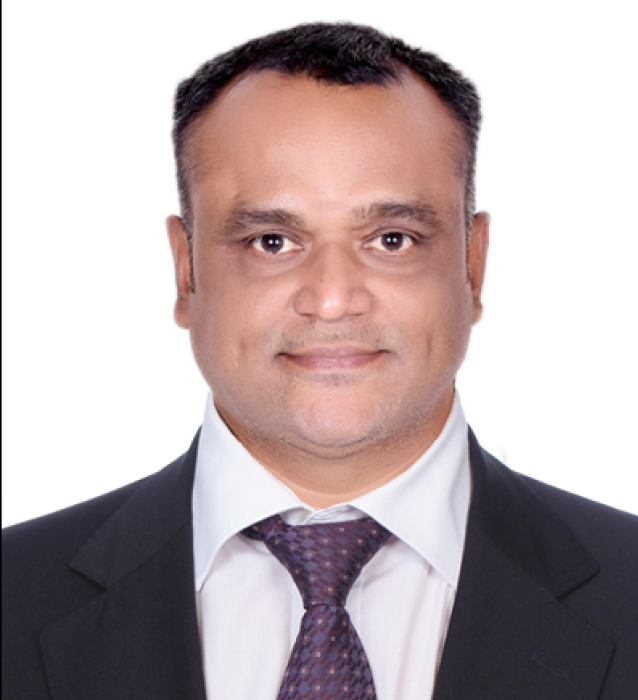The curriculum for MTech in Renewable Energy Engineering involves learning the theoretical and practical aspects of the below key modules:
| SN | Course | Semester | Credit |
|---|---|---|---|
| 1 | Renewable Energy and Power evacuation | 1 | 3 |
| 2 | Applied Industrial IoT | 1 | 3 |
| 3 | Electronic Instrumentation Systems | 1 | 4 |
| 4 | Solar Energy | 1 | 3 |
| 5 | Bio and Hydro Energy Sources | 1 | 3 |
| 6 | Power Electronics for Energy Systems | 1 | 4 |
| Total | 20 | ||
| SN | Course | Semester | Credit |
| 1 | Energy Economics and Renewable Energy Policy | 2 | 3 |
| 2 | Wind Energy | 2 | 3 |
| 3 | Plant Automation for Process Industries | 2 | 3 |
| 4 | Solar Thermal Engineering | 2 | 3 |
| 5 | Mini Project | 2 | 4 |
| 6 | Energy Management. | 2 | 4 |
| Total | 20 | ||
| 1st Year total | 40 |
| SN | Course | Semester | Credit |
|---|---|---|---|
| 1 | Energy Storage Systems | 3 | 3 |
| 2 | Energy Forecasting and Modeling | 3 | 3 |
| 3 | Smart Grid Technologies | 3 | 3 |
| 4 | Project Management | 3 | 3 |
| 5 | Aerodynamics and Wind Turbines | 3 | 3 |
| 6 | Individual project Stage I | 3 | 5 |
| 7 | Green Energy Systems: An Overview & It’s Application | 3 | 3 |
| Total | 23 | ||
| SN | Course | Semester | Credit |
| 1 | Group project | 4 | 5 |
| 2 | Individual Project Work Stage II | 4 | 15 |
| Total | 20 | ||
| 2nd Year total | 43 |
L&L&T EduTech shall facilitate internships across L&T’s business units for qualified and well performing students, based on the requirements of the business units. The internship would be offered across various Technical and Functional departments including Finance, HR, Digital & IT streams. It will also provide opportunity for the students to be a part of forums with access to webinars and conferences and an opportunity to interact with Subject Matter Experts from the Industry.
MTech in Renewable Energy Engineering is a postgraduate program that focuses on providing students with in-depth knowledge and skills in the field of renewable energy. This program is designed to equip students with the technical expertise required to address the global challenges of energy security, climate change, and sustainable development. During this program, students are introduced to various renewable energy sources such as solar, wind, hydro, geothermal, and bioenergy. Gain expertise on the principles of energy conversion, energy storage, and energy distribution. The curriculum also includes courses on energy policy, economics, and management, enabling students to understand the social and environmental implications of renewable energy technologies. Opportunities for students in various sectors such as energy, engineering, manufacturing, research and development, consulting, designing, and implementing renewable energy systems, and more.

Larsen & Toubro Ltd is one of the leading engineering conglomerates operating at various parts of the globe providing technology, engineering, construction manufacturing and services including learning and assessment solutions and platforms through its EduTech business unit. L&T EduTech is a new business unit from L&T, which aims to bridge the gap between Industry and Academia. The core objective would be to enhance the employability of students as well as aspiring professionals across various Engineering & Technology sectors. Keeping the focus on employability, L&T EduTech has launched a series of industry-led application-oriented courses under its product portfolio - L&T College Connect.
L&T EduTech will conduct program delivery in each semester in Hybrid model by its expert practitioners on the respective subject/ technology.
Each of these programs will provide conceptual learning supported with real time industry scenarios. As a result, students will be exposed to the fundamentals along with industry relevant knowledge derived from practice. These programs will aid in better understanding of the current state of the practice for Industries, thereby improving the employability of the students.
The renewable energy industry has emerged as a critical sector in the global fight against climate change. The industry has seen remarkable growth over the past decade, with more and more countries adopting renewable energy as a key source of power. In India, the renewable energy sector has seen a significant increase in investment and development, making it one of the fastest-growing industries in the country. The Indian government has set ambitious targets to increase the share of renewable energy in the country's energy mix. As per the National Electricity Plan, India aims to achieve 175 GW of renewable energy capacity by 2022, which includes 100 GW of solar power, 60 GW of wind power, 10 GW of biomass power, and 5 GW of small hydropower. These targets have attracted significant investment from both domestic and international players, resulting in the growth of the renewable energy industry in India. The renewable energy sector has also created numerous job opportunities for skilled professionals. The sector employs engineers, technicians, project managers, energy consultants, and researchers, among others. The industry's growth has also spurred innovation, leading to the development of new technologies and solutions to address the challenges facing the sector.
The renewable energy industry in India has primarily focused on solar and wind power. India is among the top three countries in the world in terms of installed capacity for both solar and wind power. The country has also seen the emergence of new renewable energy technologies such as hydro, geothermal, and biomass, which are gaining traction in the market. The growth of the renewable energy industry in India has also led to the emergence of new business models and financing mechanisms. Power purchase agreements, green bonds, and energy service companies are among the new business models that have been developed to promote renewable energy investment.

Program Leader
My name is Arjun Vasatkar, and I am the program leader for this course at ADYPU. We are immensely proud of our cutting-edge curriculum, which has been developed both to align with the demands of the industrial sector and to mirror some of the best infrastructure engineering programs in the world. I welcome you to join
ADYPU to transform your career and give you a competitive advantage in pursuing a rewarding professional career

Program Leader - Engineering
Dr. Vijayakumar Varadarajan is a devoted computer scientist and engineer with a Ph.D. and twenty years of experience at the national and international levels of education. His management expertise in a wide range of businesses and organisations has allowed him to get insight into the cutting edge of future advancements. He's been an adjunct professor at the University of New South Wales and a professor and associate Dean at VIT University in Chennai, to mention a few.

Lead SME – Civil Engineering
Masters in Structural Engineering from IIT Madras

B.E. Electrical and Electronics Engineering
B.E. Electrical and Electronics Engineering from College of Engineering, Guindy

This is a global M.Tech program in Renewable Energy Engineering that provides in-depth instruction in cutting-edge areas including solar, wind, hydro, and geothermal energy; renewable technology; virtual design and development; data analysis; artificial intelligence (AI) or machine learning (ML); and digital technologies. This course will familiarise you with the most in-demand skills that you need to lead any successful renewable energy engineering project of any scale.

Stay updated on the latest renewable engineering industry trends and practises by accessing resources powered by our research, knowledge, and real-world work experience with our collaboration partners, L&T EduTech.

In order to make the most of your time spent studying cutting-edge technology and advancing your career prospects, register for relevant networking events, job boards, startup brainstorming sessions, and community support 24/7 with online groups and webinars. Make contact with influential people in the global renewable energy engineering industry. And be able to launch your ideas in real time and get inspired.
M.Tech in Renewable Energy Engineering is a two-year postgraduate degree program that focuses on the study of renewable energy sources such as solar, wind, hydro, geothermal, and biomass. The program is designed to equip students with the skills and knowledge required to design, develop, and implement renewable energy systems.
It is a 2-years full time program.
Candidates should have a B.E./B.Tech degree in any discipline with a minimum of 50% marks in aggregate from any recognized university/Institution or AMIE, or any other equivalent qualification. Along with-it candidates should also have a valid score in GATE or ADYPU Nuovos PGAT
After completing M.Tech in Renewable Energy Engineering, graduates can work in various industries, including renewable energy generation companies, consulting firms, research organisations, and government agencies. Job profiles for these graduates include renewable energy engineer, project manager, research analyst, consultant, and sustainability officer, among others.
Renewable Energy & Power Evacuation
Applied Industrial IoT
Plant Automation for Process Industries
Smart Grid Technologies
Green Energy Systems: An Overview & Its Application
Some of the skills required for an M.Tech in Renewable Energy program include:
The average salary for an M.Tech in Renewable Energy, MTech in solar energy or a Msc renewable energy engineering graduate can vary depending on several factors such as the industry, job profile, location, and the experience of the candidate. However, on average, an M.Tech in Renewable Energy graduate can expect a starting salary of around INR 10-12 lakhs per annum. With experience and expertise, the salary can go up to INR 20-25 lakhs per annum or more, depending on the factors mentioned above. Renewable energy is a rapidly growing industry, and the demand for skilled professionals in this field is expected to rise in the coming years, which may also have a positive impact on salaries equivalent to European and British University’s MSC in renewable energy graduates.

MBA Pro is a global MBA designed for recent graduates and experienced professionals seeking international career advancement opportunities. 

Just as the circulatory system is vital to the human body, the finance sector is the economy's lifeblood. Technology and innovation are the driving forces behind rapid advancements in finance.

Is rapid advancement giving you FOMO? Do you have thoughts about transitioning into a whole new field? Look no further because we got you!